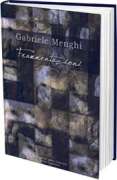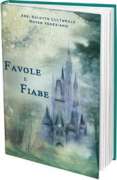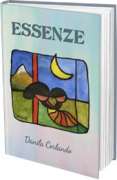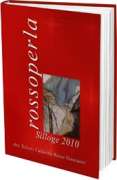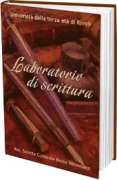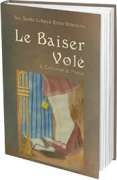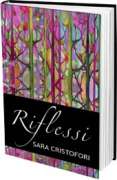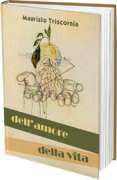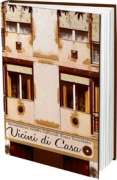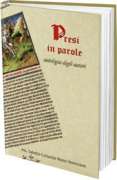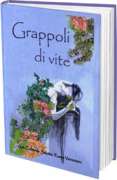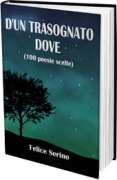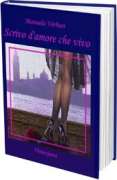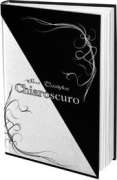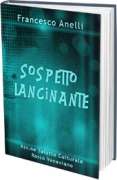Scritto da © Carlo Gabbi - Mer, 07/02/2018 - 06:58
Part Two
The Gypsies crossed the Danube at Baja, south of the central Hungarian plain. The flooded waters had just recessed into the riverbanks, after the usual springtime flooding. It was again the calm and somnolent river, moving over the great Danubian plain. The existing plateaus nestled along the riverbanks regurgitated with luxuriant fresh lucerne. This offered an ideal camping area to the Gypsies. The wagons were parked in a horseshoe formation, creating seclusion from the road and with a commanding view over the pasture, where the horses were kept enclosed. The formed courtyard between the wagons was used to light fires and where people busied around in their normal chores.
Baja is a rich rural district with fertile farms. The town offers a river port to the many cargo boats navigating along the river transporting grains and many goods across the country. The farmers and the port authority were always shorthanded of casual workers, and the gypsies, passing through, were welcome to feel the vacancies.
The local farmers employed the Gypsies, skilled blacksmiths, in forging horse shoes or sharpening farm utensils.
Gypsies women instead kept busy, moving door to door, in the town’s streets, doing what they knew best, spelling the future to the local women, reading their destiny with the Tarot or the palm. Normally at the end of the day, the Gypsies women earned more than their male partners, they were really the breadwinners in their community.
Gypsies are used to a communal life. Women attended the children, collected wood and lit fires. They also erected tripods, holding a chain to hang over the fire cast-iron pots cooking stews and broth of rabbits, hare, deer, ticked trout and wild boar.
In their cooking they used a traditional centuries old menu, still capable of sending across the camp its appetizing smell and to call people over for their dinner.
In the communal life men attend their animals, the horses for their wagons and the goats to supply fresh milk for the youngest. At night, they enclosed the animals in a yard, patrolled by the dogs in their nocturnal vigil over the entire community.
After dinner, men lit their pipes, letting the tobacco aroma, mixing with the acrid smell of the wine, that was drunk directly from the leather canteens, which spread over in the nocturnal air.
Evenings invited also to extricate from their violins magical sounds of their Gypsy music. They recreated with those melodies the Gypsies’ tormented life over the many centuries of wandering.
It was over those particular nights, that the sound of the violins revived Joko’s memories of his past. He could reawaken those happy days he fell in love with Marika.
How could he ever forget that springtime night, illuminated by the moon? They were camped just in this same area, used by his people over the many years of migration.
The breeze coming from the Danube was permeated with a sweet smell of roses mixed with the scent of musk of the nearby forest.
The contrasting fragrances acted like a drug in the soul of the youngest, creating inebriating dreams. On that night, Joko took Marika’s hand, and reassuringly looked at her.
With a smile invited, “Marika come with me, I like to show you the constellations in the sky, and name them for you.”
Marika was beautiful. He loved her curly black hair descending past her shoulders and silky to the touch. Her lips were pink and fleshy and well formed.
She had the most perfect chiseled white teeth. Her young breasts were large and solid, with thick, erected nipples showing through the light material of her blouse. Marika was only sixteen then, but a woman in all ways, the age that a Gypsy woman usually marries.
Joko wasn’t quite twenty at that time and for some time desired Marika to be his woman. He was sure that tonight would be the propitious night to propose to her.
They ran into the forest holding hands and laughing happily, but not before asking seclusion to the Great Forest Mother, and the animals and trees, as per tradition of their people and legends.
Joko tried to kiss her.
She laughingly warned him, “Joko, don’t be so impatient. I also want to make love to you, but first let us sit down, let us admire this night covered with so many stars. Why don’t you tell me again the name of the many constellations in the sky? I particularly desire that you show me, once more, the constellation of the Little Bear. I have a feeling that will be our constellation and whenever we are separated, we’ll look into the sky and discover the magical power of our constellation, reminding us of the pleasure of this night.”
Joko once more saw her as she was in that night and nostalgically desire her, ‘Marika as usual had been right that night’ Joko melancholy remembered.
How many times over the past thirty years had he looked at those stars? Always, when he did, memories of her came back. Always the magical spell was there capable of resurrecting once more their first night together.
It was such a vivid memory. Everything around them was calm and relatively silent.
Only an owl was testimony to their exchanged words of love. That owl witnessed also Marika’s savage cry of pain and pleasure when she donated her virginity to him with the promise to love him for ever.
By their traditions they married the same night when they returned to the camp, in a simple Gypsies ritual, exchanging their vow of love in front of the other Gypsies.
Joko remembered her with love and remembered how beautiful Marika was that night in the regalia of her best gypsy dress, having a silky colorful scarf holding her black curly hair, and wearing the traditional red calf boots. Marika that night was irradiated with joy and kept repeating, “I’m the happiest gypsy woman in the world.”
~*~
The caravan followed the Danube upstream until they reached Pest, the industrial area of the Hungarian capital, Budapest. The city, under the Communist regime, had lost the great splendors of the old days.
Joko had arranged their stopover in Pest to rest the horses before moving further north to their winter camp.
Joko loathed this location. It brought back evil memories, and resurrected an unwanted ghost who kept chasing him from the ill-omen day of the past. Joko was, as all Gypsies are, quite superstitious.
His memories went back thirty years in time. It was just a few months after he had married Marika, and both were young and enjoyed what life offered.
One afternoon, they were walking in Pest, when Marika noticed a large poster, outside a dance hall, inviting the locals to attend on the following Saturday.
“The time is right Joko. Do you remember that night you promised to take me to a proper ballroom where we can dance all night long? It seems we have that opportunity. Please, take me to this dance.”
Joko couldn’t refuse his young wife.
He replied, “Your wish is my wish, Marika. I’m pleased you have asked. It would be fun to learn the way they dance, particularly the new Tango Argentino. I heard the dance has the heat of the Gitanos music, where the dancers’ bodies are locked in a sensual knot.”
“Joko please, let us go. I’ll promise a special night of love for you. Something you will remember for a long time.”
They went to the dance. Marika looked ravishing in her gypsy costume and Joko noticed she was the attraction of the night creating the men’s interest. She used her sexual spell, an art in Gypsy’s women that is innate in the way of seduction. Marika knew well the importance of it and how to use her spell, and her charms called the attentions of many elegant young men that asked to dance with her. She didn’t refuse any of them, and while dancing enjoyed arousing their desires and provocatively flirted with them.
She had previously asked Joko’s permission, “Please Joko let me dance tonight with those gallant young men. I’m so full of desire and tonight it fulfills the greatest dream of my life.”
The most persistent of the dancers was a young handsome man. Someone called him Valentino, and Joko presumed he was Italian. Valentino was well dressed in the fashion of the day. He wore a rigid straw hat, a dark blue suit, and over the white shirt fashioned a blue polka-dot tie. His attire was completed with black, highly polished shoes.
Valentino used a walking stick, so fashionable at that time, and had the habit of playing with it all the time. Yoko became suspicious of his attitude and kept alert, knowing that many walking sticks hid a blade inside the cane, a powerful weapon in an expert hand.
Yoko was disturbed by Valentino’s eagerness in soliciting Marika’s favors. Jealousy was blinding him and thought he should send a warning to the gigolo to cool down his persistence.
He thought, “Marika is my wife and therefore it is my business to stop him and to protect her from such impertinence.”
Valentino asked Marika to dance again.
Yoko impatiently stepped in between them, brusquely saying, “Stay away. Hell, who you think you are, Amigo? She is my wife and only mine. I won’t tolerate your insolence. I’m not prepared to share her with you or anybody else.”
Valentino, at those words, stepped back. Maybe he wanted to acknowledge his wrong doing, and with this in mind, gallantry bowed in front of Joko and with a sweet smile on his lips tried to ingratiate the Gypsy. He tried to speak to him but it sounded like unintelligible words. Yoko was furious of the act of the manikin fronting him and felt more than ever affronted by Valentino’s mockeries.
He misjudged his adversary in front of him, and thought, ‘Is he trying to mock me?’
Joko had reached the end of his self control, “Are you trying to insult me?”
Valentino didn’t understand. His face had a suave smile, but his opponent judged that to be a sarcastic way of insulting him. He saw danger when Valentino raised his walking stick over his head. Joko saw in that act Valentino’s readiness of extracting the blade to strike back. With primitive instinct he reacted rapidly. His hunting knife sparkled in his hand and unexpectedly, like lightening crossing the air, he threw it.
Valentino’s blood pumped out his life. The sharp blade had split his young heart in half. His face was distorted by pain and stupor.
Joko swiftly recovered his precious knife and before anyone of the crowd tried to stop him, taking advantage of the confusion of the moment, disappeared in the way that only a gypsy can, without leaving a trace behind. He became part of the forest where he hid, and his gypsy’s powers made him invisible to others. He became part of the hunted animals living in the woods.
Marika, after this accident, returned swiftly to the encampment and informed their leader. At short notice, they moved away. They knew that Joko was capable to look properly after himself and to find his way, when the police would realize their incapacity to arrest him.
When weeks later, Joko came out from the hiding, he found out that Valentino’s walking stick had never hidden a weapon. He didn’t feel guilty for having killed a man. He acted like a wild animal, subconsciously to preserve his life from a potential assaulter, and in his believe he thought to have acted in self-defense.
»
- Blog di Carlo Gabbi
- 2298 letture

 Sostieni anche tu il nostro sito
Sostieni anche tu il nostro sito
 le nostre pubblicazioni
le nostre pubblicazioni 
